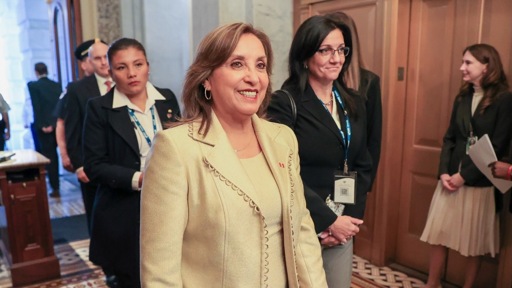The newly enacted amnesty law seeks to absolve uniformed personnel, who are being prosecuted for their actions in the internal armed conflict that Peru experienced between 1980 and 2000, from responsibility for serious crimes. The conflict pitted revolutionary movements, such as Sendero Luminoso and the Túpac Amaru Revolutionary Movement (MRTA), against the Peruvian state.
According to the Truth and Reconciliation Commission, nearly 70,000 Peruvians lost their lives during the conflict, and 20,000 are missing. In addition, the commission reported that state agents and self-defense committees were responsible for 37% of the deaths and disappearances during the conflict.
Of those killed by the state, 61% were victims of forced disappearance. In addition, more than 6,400 cases of torture and other cruel treatment by the state and its allies were recorded, which is why the Peruvian government’s decision has been widely questioned.
The government celebrates the law
On July 24, the Inter-American Court of Human Rights ordered Peru to refrain from enacting the law, in order to evaluate the amnesty’s compatibility with other legal processes. However, on July 31, President Dina Boluarte defied the decision and continued with its approval.
In fact, the law had already been approved by Congress on July 9, and Boluarte subsequently enacted it on August 13. It grants a general amnesty to members of the state and self-defense committees who were convicted of or are under investigation for crimes during the period of internal armed conflict. Additionally, the law requires the release of persons over 70 years of age who have been convicted and imprisoned for crimes committed during that period.
The government formally defended the decision: “Peru recognizes those who gave everything for their country. This measure restores dignity and opens a new chapter in our history. Their dedication and courage live on in the memory of our nation,” wrote the Presidency of Peru in a post on X.
At the ceremony to enact the controversial amnesty law, Boluarte said: “[The uniformed personnel] defended the country and shed their blood for the life, liberty, and security of our communities, towns, and families, bravely confronting the terrorist forces that unilaterally declared war on the country, the state, and the Peruvian people.”
Relatives of the victims and human rights defenders protest
Gisela Ortiz, spokesperson for one of the worst massacres of the internal armed conflict, carried out by members of the police and intelligence service, known as La Cantuta, which occurred in 1992, said: “The law rewards human rights violators and closes investigations that are still ongoing.” In that event, 10 people were kidnapped from La Cantuta University in Lima and murdered.
Teófila Ochoa, one of the survivors of the massacre of 69 people perpetrated by a military patrol in an indigenous community in Accomarca in 1985, told BBC: “As a Peruvian, it hurts to see laws being passed to free the murderers who burned, killed, and raped our relatives.”
Several human rights organizations have protested the decision, warning of the dangerous precedent set by the amnesty law. Juanita Goebertus, director of the Americas Division at Human Rights Watch (HRW), said: “The law undermines decades of efforts to ensure accountability for atrocities committed and further weakens the rule of law in the country.”
HRW also emphasized: “During the armed conflict, Peruvian security forces committed serious abuses, many of which constitute war crimes, such as extrajudicial killings, enforced disappearances, torture, sexual violence, and other serious human rights violations.”
Amnesty International rejected Boluarte’s decision, arguing that it rewards impunity in cases of human rights violations: “Amnesty International rejects the enactment of the law granting amnesty to perpetrators of crimes under international law and which, under the guise of ‘humanitarian amnesty’, allows the release of persons over the age of 70 with final sentences or in the process of serving their sentences … [The law] violates the obligations of international law that the Peruvian State has undertaken and sets a serious precedent.”
In addition, Amnesty asserted that Boluarte’s decision goes against international law: “The organization recalls that international law and international human rights standards establish that amnesties are inadmissible for cases of serious human rights violations or crimes under international law, such as those committed in Peru between 1980 and 2000.”
The post Boluarte amnesties hundreds of Peru security forces implicated in human rights abuses appeared first on Peoples Dispatch.
From Peoples Dispatch via this RSS feed


